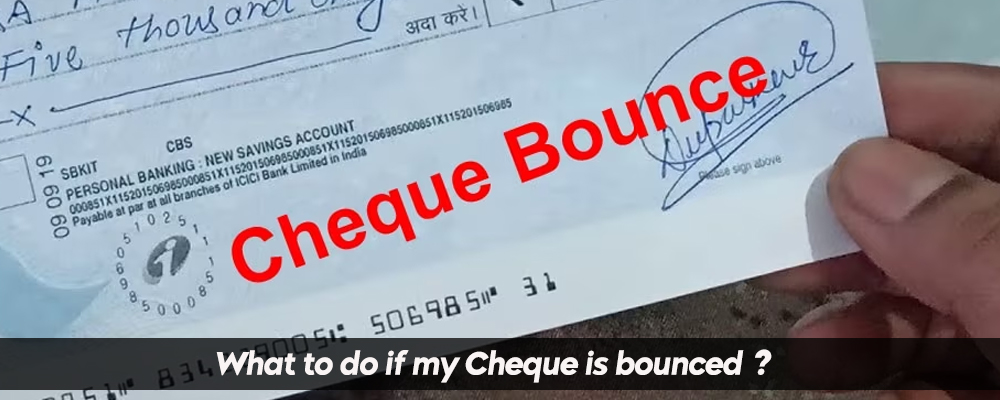In India, the provisions regarding bounced cheques are covered under the Negotiable Instruments Act, 1881. Section 138 of the Act deals specifically with the dishonour of cheques due to insufficiency of funds or other reasons.
According to Section 138, if a cheque is dishonoured, the holder of the cheque (the person who received it) can initiate legal proceedings against the issuer (the person who issued the cheque) by following the prescribed procedure. Here are the key points to consider:
Legal requirements:
The cheque should have been presented within six months from the date of issue or within the validity period of the cheque, whichever is earlier.
The cheque should have been dishonoured by the bank due to insufficient funds or other reasons.
Need A Legal Advice
The internet is not a lawyer and neither are you. Talk to a real lawyer about your legal issue

Notice of demand:
The holder of the cheque must send a written notice of demand to the issuer within 30 days of receiving the information of the cheque’s dishonour from the bank.
The notice should specify the reasons for the dishonour and demand payment of the cheque amount within 15 days from the receipt of the notice.
Issuer’s response:
If the issuer fails to make the payment within 15 days of receiving the notice, the holder of the cheque can proceed with legal action.
If the issuer makes the payment within 15 days, the matter is considered settled, and no further action can be taken.
Filing a complaint:
After the expiry of 15 days from the notice period, the holder of the cheque can file a complaint with the appropriate court having jurisdiction over the matter.
The complaint should be filed within one month from the expiry of the notice period.
Court proceedings:
The court will issue summons to the issuer, and if the issuer pleads not guilty, the court will proceed with the trial.
If the issuer is found guilty, the court can order the issuer to pay a fine or imprisonment, or both, depending on the circumstances.
The court may also direct the issuer to pay the holder an amount equal to the cheque amount as compensation, which is typically two times the cheque amount.
Case law examples:
In the case of K. Bhaskaran v. Sankaran Vaidhyan Balan (1999), the Supreme Court held that a complaint under Section 138 can be filed in any place where the cheque was dishonoured, or where the payee resides, or where the bank is situated.
In the case of M/s. Electronics Trade and Technology Development Corporation Ltd. v. Indian Technologists and Engineers (Electronics) Pvt. Ltd. (2016), the Supreme Court held that the complaint must clearly mention the ingredients of Section 138, such as the dishonour of the cheque and the fact that a notice of demand was issued.
Please note that while these case laws provide insights into the legal aspects of bounced cheques in India, it’s essential to consult with a legal professional for specific advice tailored to your situation, to get best of the advice you can approach to lead India where you can consult to best of the Cheque Bounce Lawyers who will help you to tackle the situation, you can also ask the free question, talk to best of the Lawyers and so on.





 Talk to a Lawyer
Talk to a Lawyer